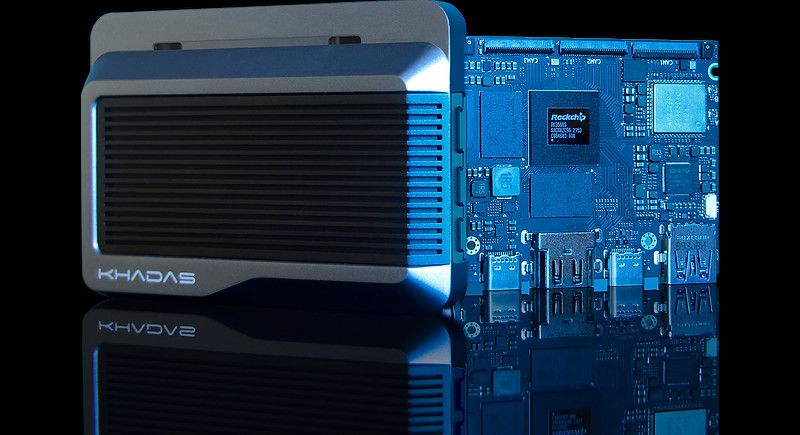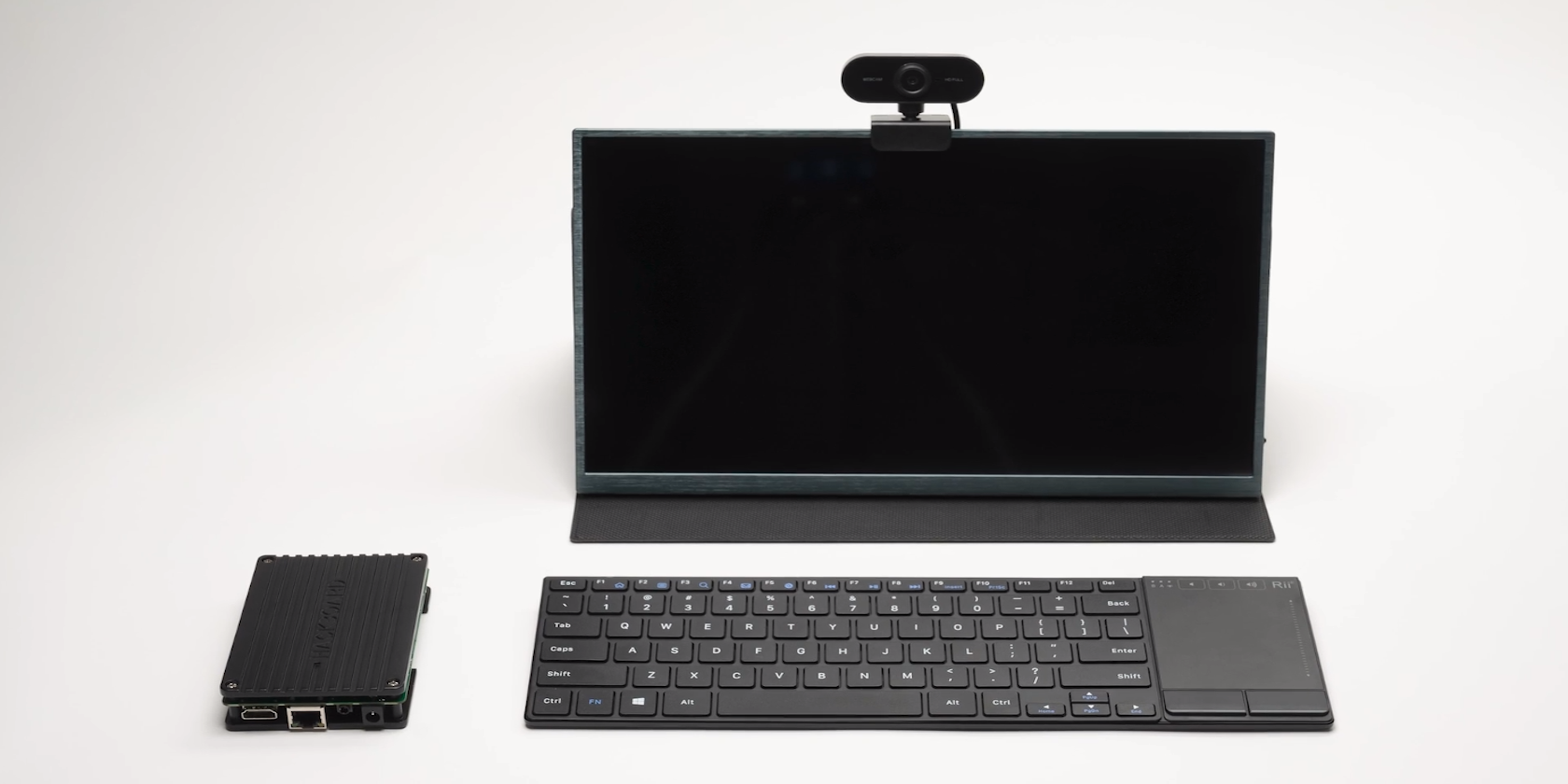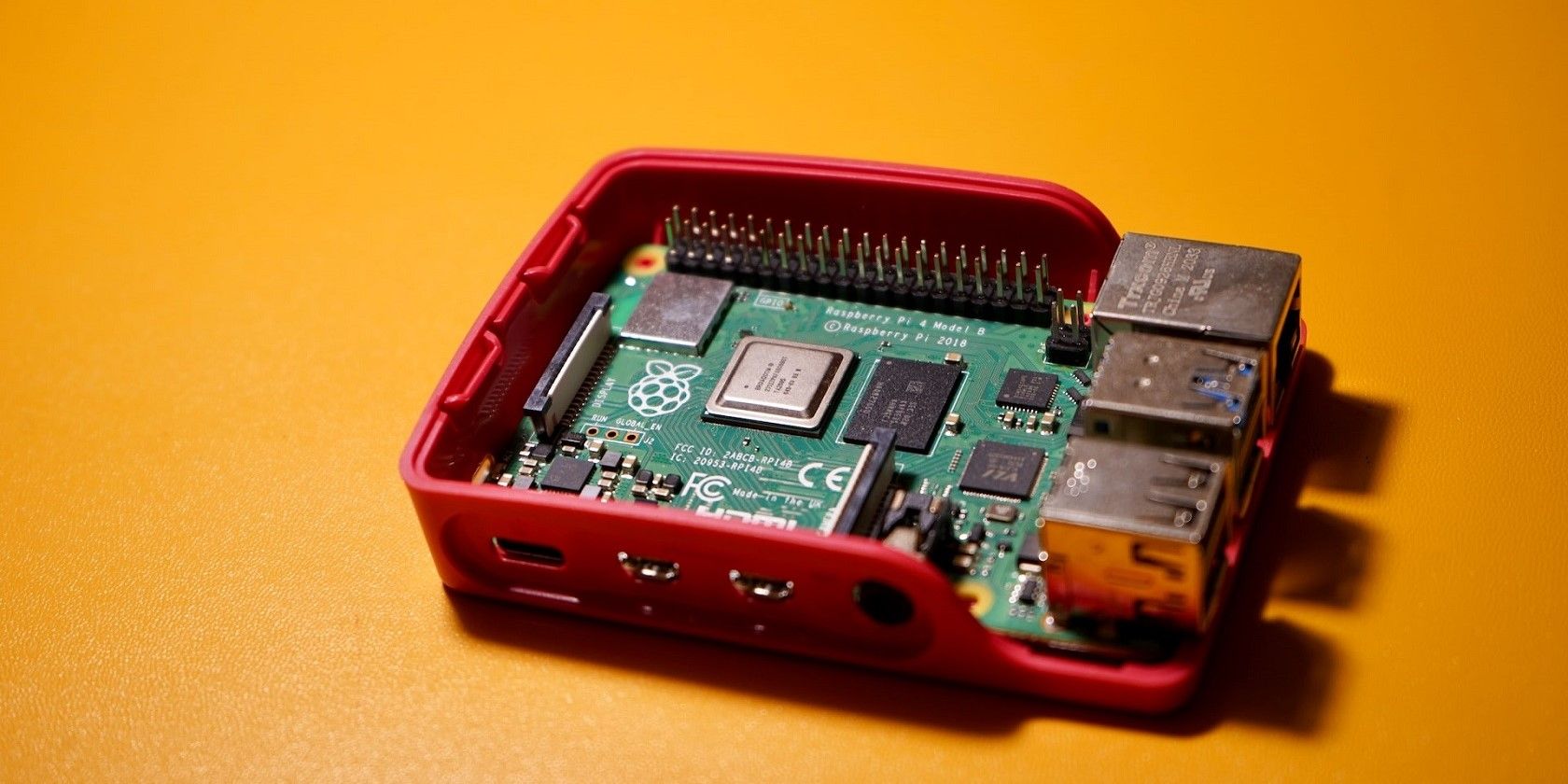
Efficient Single-Board PCs for Windows Users

Efficient Single-Board PCs for Windows Users
Single-board computers (SBCs) are pretty capable devices and part of their appeal is the excellent price-to-performance ratio. However, a good number of these tiny computers struggle to perform everyday tasks that most of us have come to take for granted, such as running the Windows operating system.
MUO VIDEO OF THE DAY
SCROLL TO CONTINUE WITH CONTENT
Some of these boards won’t run Windows at all, and some of those that can run it perform poorly and stutter every step of the way. Your options are limited if you’re looking for a single-board computer that can run Windows properly. However, there are a few devices out there that can do the job quite well.
Disclaimer: This post includes affiliate links
If you click on a link and make a purchase, I may receive a commission at no extra cost to you.
Windows System Requirements
Most SBCs have processors that are ARM-based which affords themcertain benefits over x86 processors , such as being inexpensive and energy-efficient. With Windows on ARM, you can run Windows and emulate standard x86 applications. It isn’t perfect yet, but it is getting there very slowly. x86-based single-board computers are generally better suited to running Windows.
To determine single-board computers that will be able to run Windows, we need to establish the criteria they need to meet. So, let’s take a look at the basic requirements to run Windows 10 and Windows 11.
Windows 10 system requirements:
- Processor: 1GHz or faster
- RAM: 1GB for 32-bit or 2 GB for 64-bit
- Storage: 16GB for 32-bit OS or 20GB for 64-bit OS
- Graphics card: DirectX 9 or later with WDDM 1.0 driver
- Display: 800 x 600
Windows 11 system requirements:
- Processor: 1GHz or faster with two or more cores
- RAM: 4GB
- Storage: 64GB or larger
- Display: High definition (720p) display; greater than 9” diagonally
- Trusted Platform Module : TPM version 2.0
1. LattePanda 3 Delta
The LattePanda 3 Delta is the much more powerful successor to the original LattePanda released in 2018. It is also known as LattePanda 3 Delta 864, with the ‘8’ and ‘64’ representing the 8GB RAM and 64GB eMMC storage, respectively.
This SBC has a powerful quad-core processor and a sizable amount of RAM, making it capable of running not only Windows 10 but also Windows 11.
LattePanda 3 Delta key specs:
| Processor | 11th gen, quad-core, four-thread, Intel Celeron N5105 capable of running at a clock speed of 2.0GHz to around 2.9GHz (burst) |
|---|---|
| GPU | Intel UHD Graphics (frequency: 450 to 800MHz) |
| RAM | LPDDR4 8GB 2933MHz |
| Storage | 64GB eMMC V5.1, microSD card slot |
| Networking | Wi-Fi 6, Bluetooth 5.2, Intel Gigabit Ethernet |
| Ports | 1 x USB 3.2 Gen 2 Type-A, 2 x USB 3.2 Gen 1 Type-A |
| Power | 12/15V DC via USB-C or 12V DC via DC jack |
| Other Features | Onboard heat sink and fan TPM, built-in TPM (2.0), Arduino Leonardo ATmega32U4 co-processor |
2. Khadas Edge2

Image Credit: Khadas
The Khadas Edge2 is an ARM-based single-board computer that is designed to provide maximal performance in a minimal form factor. It is particularly suited for deep learning and natural language processing applications due to the embedded neural processing unit (NPU) capable of computing at 6 TOPS (tera operations per second).
With up to 16GB of RAM and a high-powered octa-core processor, the Khadas Edge2 is capable of running ARM versions of Windows 10 and Windows 11 without any problems.
Khadas Edge2 key specs:
| Processor | Rockchip RK3588S octa-core 64-bit processor with quad-core A76+ (2.4GHz) and quad-core A55 (1.8GHz) |
|---|---|
| GPU | Mali-G610 GPU |
| RAM | 8GB or 16GB LPDDR4 RAM |
| Connectivity | Bluetooth 5.0, Wi-FI 6, IEEE 802.11 ax/ac/a/b/g |
| Ports | 1 x USB-C (Power Delivery only), 1 x USB-C (3.1, Display Port 1.4, and Power Delivery), 1 x HDMI 2.1 (8K@60Hz) |
| Other Features | 3 x MIPI CSI connectors, 2 x MIPI DSI connectors, 2 x 30-pin GPIO expansion header |
| Power | USB-C Power Delivery 12V 2A (24W) |
3. Hackboard 2 SBC

TheHackboard 2 is a single-board-compute r marketed as a small, affordable desktop replacement with a wide range of connectivity options. It features a dual-core Intel Celeron N4020 processor which clocks up to 2.8GHz and comes with 64GB eMMC storage. You can get it with either Windows 10 Pro or Debian Linux pre-installed.
The base edition with 4GB RAM, 64GB eMMC storage, and Windows 10 Pro bundled is available for around $200 on theHackboard website.
Hackboard 2 key specs:
| Processor | Intel Celeron N4020 64-bit dual-core processor, up to 2.8GHz |
|---|---|
| GPU | Intel HD Graphics 600 (650MHz max) |
| RAM | 4GB or 8GB DDR4 RAM |
| Networking | Wi-Fi 5, Bluetooth 5.1 |
| Ports & Expansion | 3 x USB 3.0 ports, 5-pin USB 2.0 camera connection, 40-pin GPIO header (Raspberry Pi HAT compatible), NVMe M.2 B key slot, NVMe M.2 B & M key slot, HDMI 1.4 (4K@30Hz) |
| Other Features | 30-pin eDP connector, 6-pin touchscreen interface |
| Power | 12V DC, 3A power supply |
4. UDOO BOLT V8
The UDOO BOLT V8 is quite expensive at $550, but it packs a lot of specs that may appeal to users who need the heavy-lifting power. For purists, the V8 is not technically a single-board computer, as the RAM is inserted in SODIMM sockets and is not embedded in the board itself.
However, it features the typical amount of connectivity that is usually included in single-board computers. It also boasts almost twice the performance of a Macbook Pro 13” with an Intel i5 processor and three times that of a Mac Mini.
UDOO BOLT V8 key specs:
| Processor | AMD Ryzen Embedded V1605B, quad-core/eight-thread @2GHz (3.6GHz Boost) |
|---|---|
| GPU | AMD Radeon Vega 8 Graphics (8 GPU Compute Units) |
| RAM | Two-slot SODIMM dual-channel 64-bit DDR4 2400 MT/S with ECC support up to 32GB |
| Storage | 32GB EMMC 5.0 High Speed Drive, 1 x M.2 Socket 2 Key B for SSD SATA modules, 1 x M.2 Socket 3 Key M for NVMe modules |
| Networking | Gigabit Ethernet |
| Ports | 2 x USB 3.0 Type-A, 2 x USB Type-C, 2 x HDMI 1.4 / 2.0A |
| Other Features | Consumer IR receiver, fan controller, RTC battery included, 40-pin GPIO header, Microchip ATmega32U4 co-processor (Arduino Leonardo compatible) |
| Power | DC-in jack 19V 65W, USB Type-C Power Delivery |
Honorable Mention: Raspberry Pi 4

While the experience is anything but seamless, and you may have trouble with some drivers, running Windows on theRaspberry Pi 4B flagship SBC might be a worthwhile challenge for some users. If you’re interested, we have written a complete guide on how toinstall Windows on a Raspberry Pi the easy way . It is not ideal for everyday use, but it is workable with a certain amount of elbow grease.
Raspberry Pi 4 Model B key specs:
| Processor | Broadcom BCM2711 SoC with quad-core Cortex-A72 64-bit @1.5GHz |
|---|---|
| GPU | Intel HD Graphics 600 (650MHz max) |
| RAM | 1GB, 2GB, 4GB or 8GB RAM |
| Storage | microSD card slot |
| Networking | 2.4GHz and 5.0GHz IEEE 802.11ac wireless, Bluetooth 5.0, BLE, Gigabit Ethernet |
| Ports & Expansion | 40-pin GPIO connector, 2 x micro-HDMI ports, 2 x USB 3.0 ports, 2 USB x 2.0 ports. |
| Other Features | Two-lane MIPI DSI display port, two-lane MIPI CSI camera port |
| Power | 5V 3A power via USB-C port and GPIO; Power over Ethernet (PoE) capable using optional HAT |
Run Windows on a Single-Board Computer
Both ARM and x64 single-board computers are capable of running the Windows operating system. That aside, you will have an easier time running Windows on x64 computers. If you’re planning to use an ARM SBC as your daily driver, Windows is not the best choice currently. You’ll be better served with an operating system created specifically for ARM computers such as Armbian or a supported Android distribution.
Also read:
- [Updated] 2024 Approved Enhance Learning with Easy Recording Techniques for Your iMac
- [Updated] 2024 Approved Maximize Visual Potential – The Finest Overlays on Android/iPhone
- Get Your Hands on GPT-4 Without Spending a Penny - Here's How!
- In 2024, How to Fake Snapchat Location without Jailbreak On Lava Yuva 3 | Dr.fone
- In 2024, Top 6 Apps/Services to Trace Any Poco C65 Location By Mobile Number | Dr.fone
- Incorporating Numeric Key Symbols Into Win11's Tray UI
- Maximizing Display Quality on Windows Systems
- Reconnecting Missed Razer Devices Through WIndows' Synapse
- Reducing Boot Process Interruption: Win11 Boot Timer Shortening
- Title: Efficient Single-Board PCs for Windows Users
- Author: David
- Created at : 2024-11-30 08:34:43
- Updated at : 2024-12-06 18:19:06
- Link: https://win11.techidaily.com/efficient-single-board-pcs-for-windows-users/
- License: This work is licensed under CC BY-NC-SA 4.0.